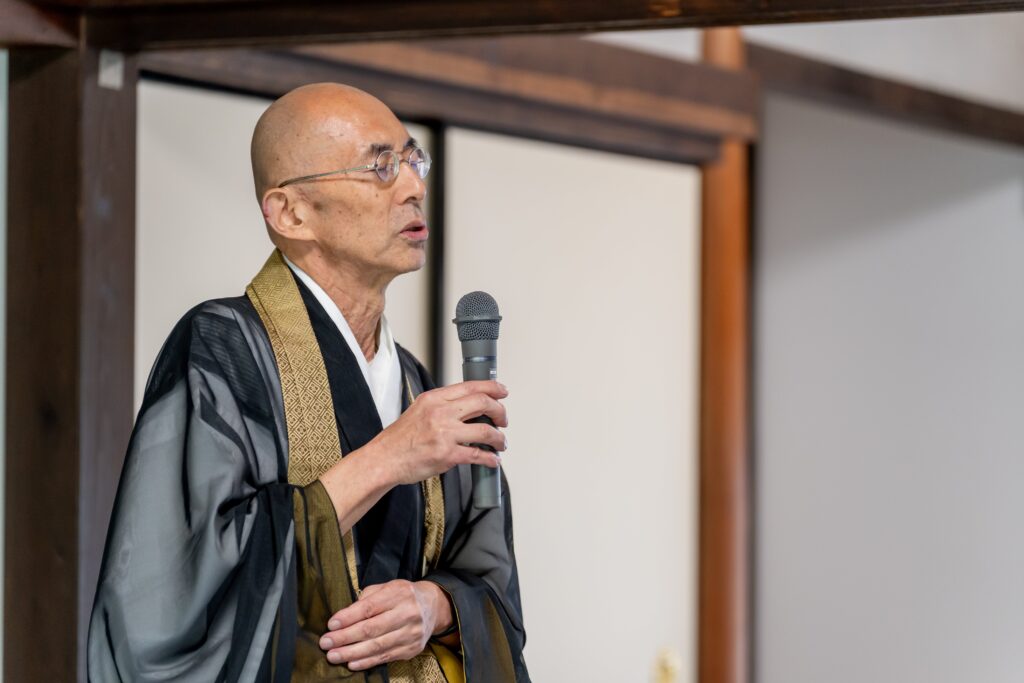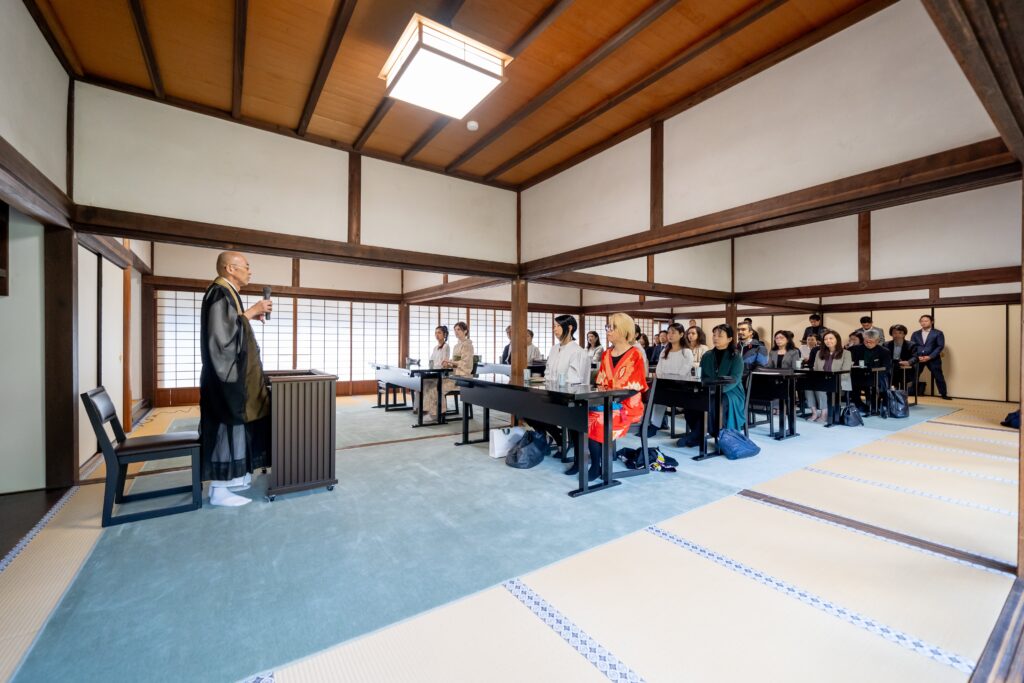
“SAISHOKU-Fair” Pre-event in Tofukuji Temple
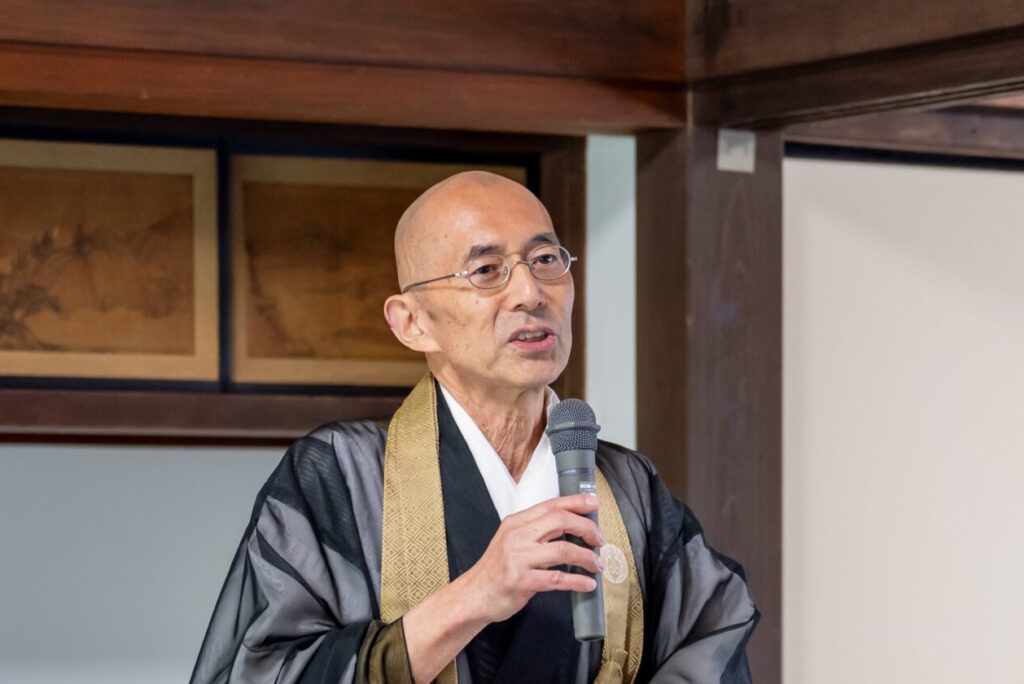
Yudo Harada (305th chief priest of the Tofukuji School)
“If you do zazen for a moment, you will be a Buddha for a moment. If you do zazen for a day, you will be a Buddha for a day. If you do zazen for a lifetime, you will be a Buddha for a lifetime”
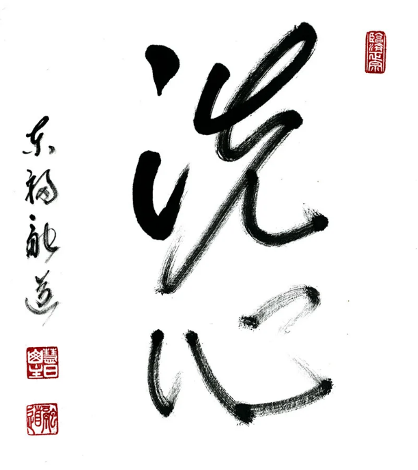
Tofukuji Temple, belonging to the Rinzai Zen sect of Buddhism, was established by Founding Master Shoichi Kokushi. The regent at that time, Kujo Michiie, proposed its establishment. The temple boasts a history of about 800 years, dating back to its construction in 1236 during the Kamakura period. Founder Kokushi was deeply invested in developing human resources and nurtured many disciples. I am the 305th in this lineage.
When Lord Kujo Michiie, struggling with the challenging teachings of the Zen master, asked how to advance in his training, Master Kokushi replied, ‘If you practice zazen for a moment, you are a Buddha for that moment. If you practice zazen for a day, you are a Buddha for that day. If you practice zazen for a lifetime, you are a Buddha for your lifetime.’ He emphasized that practicing zazen, even briefly, enables one to experience Buddhahood in that moment, and encouraged continuous practice throughout one’s life.
Although often misunderstood, in Buddhism, the ‘Buddha’ refers not to a form after death, but to becoming a better person and a person of character while alive. A commonly cited teaching is from the sutra: ‘Cease from doing evil, do what is good, purify the mind; this is the teaching of all Buddhas.’ ‘Cease from doing evil’ means to avoid bad actions, ‘do what is good’ encourages positive deeds, and ‘purify the mind’ implies cleansing one’s own thoughts and intentions.
Human beings are complex. Even generally good people may sometimes take a wrong turn depending on the situation. The essence of Buddhism, as expressed in the last part ‘this is the teaching of all Buddhas,’ is about recognizing and rectifying one’s mistakes, embodying a spirit of continuous self-improvement and reflection.
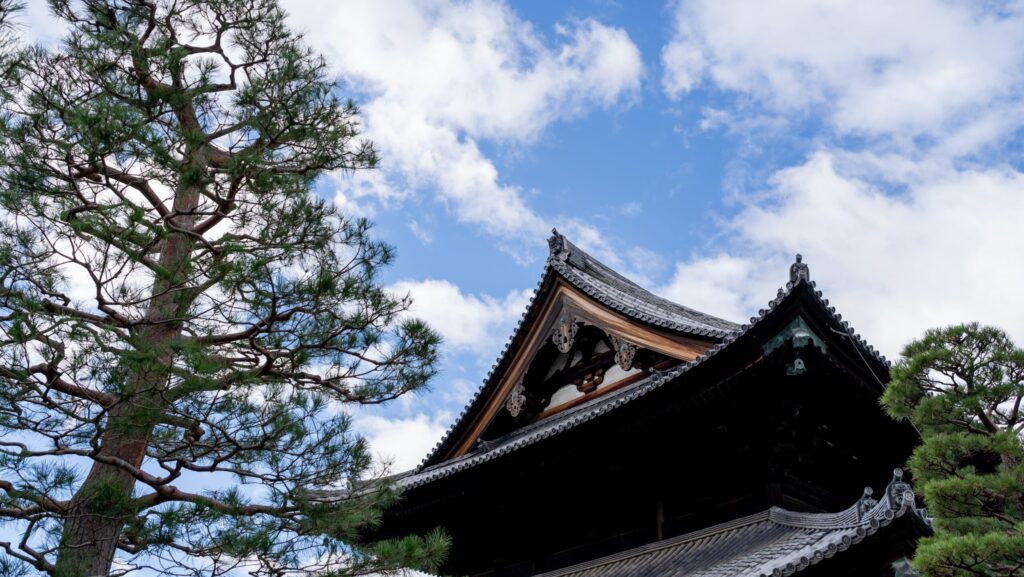
To improve human relationships
‘The gift of compassionate gaze’, ‘The gift of a warm smile’, ‘The gift of loving words’.
To implement this teaching, Buddhism advocates practicing ‘the seven acts of generosity that require no material wealth’. To improve human relationships, it’s particularly important to focus on the first three of these.
First is ‘The gift of compassionate gaze’ (Gense). This involves looking at others with kindness and empathy. The second is ‘The gift of a warm smile’ (Waganse), which means always wearing a gentle, welcoming expression. The third is ‘The gift of loving words’ (Aigose), which entails speaking with kindness and care.
Often in life, what we emit is reflected back to us. If we look at others sternly, they likely respond in kind. Conversely, a smile begets a smile. By initiating positive interactions, we can foster healthier and more fulfilling relationships.
Early in the morning, while cleaning around the temple, I greet passersby with a ‘Good morning’. I make a conscious effort to smile and speak kindly. Initially, some may ignore me, but over time, they start to return the greeting. Initiating such positive actions, aiming to steer things in a better direction, embodies the spirit of the Buddha and is the first step towards being a better person.
During my training days, I was the odd one out, surrounded by heirs to temples, as I came from an ordinary, non-religious family background and was unfamiliar with even a single sutra. In the early stages of my training, my sleep was drastically reduced. I tried to learn on just three hours of sleep a day, but it was unsustainable. On the rare occasions, twice a month, when I could sleep longer, I noticed that what I had learned the previous night stuck in my mind. This experience taught me the vital role of adequate sleep in memory consolidation.
What I’m trying to convey is that there is an appropriate way to approach tasks, and it’s important for everyone to reflect on how to become a better person. People have an instinct for self-preservation, and the challenge lies in how we can minimize this and direct our attention towards others. The ultimate manifestation of clashing self-interests is war, the worst-case scenario.
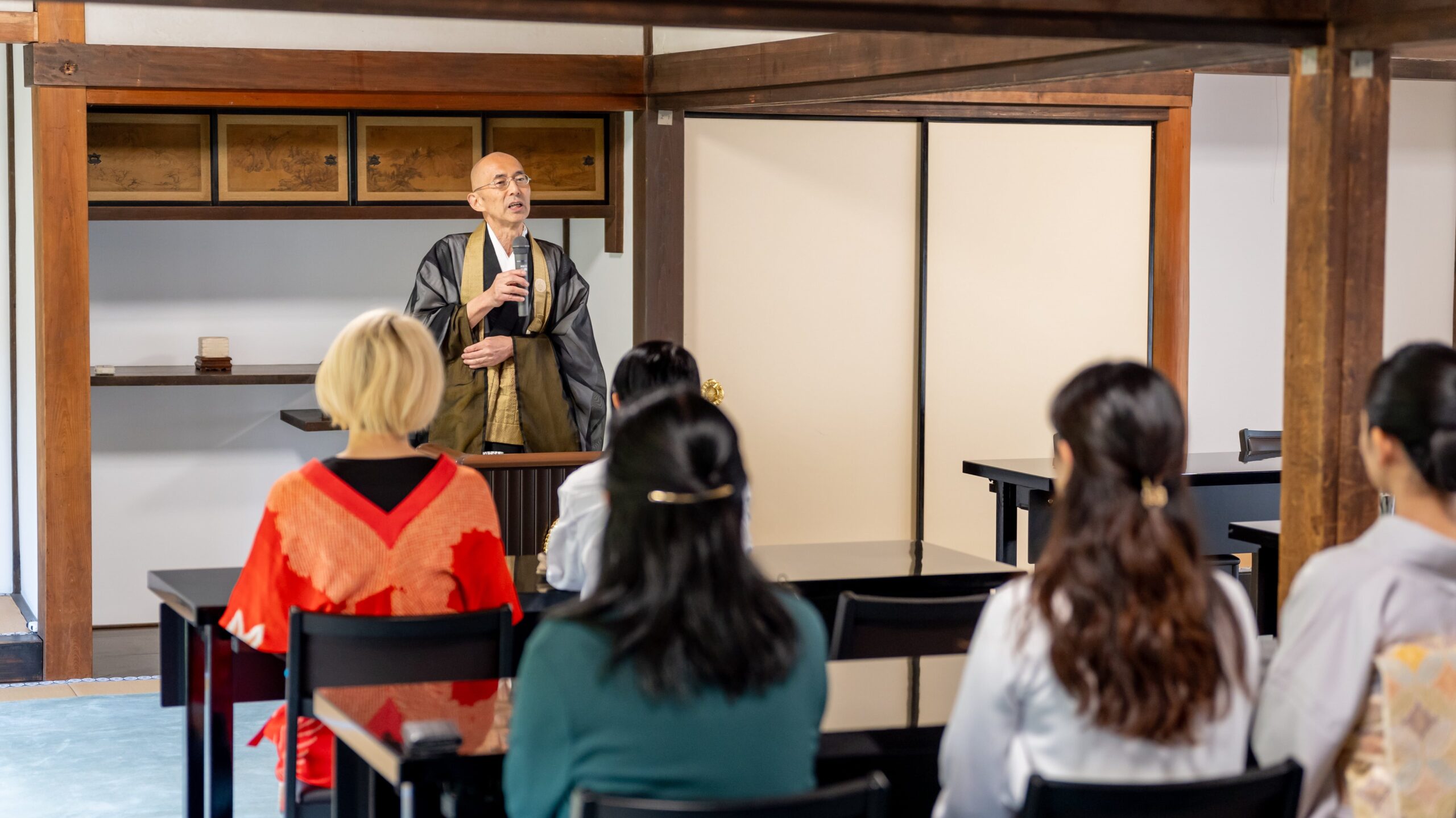
The Essence of Zen: ‘Seize It Yourself
No one is completely good or entirely bad. Everyone has both positive and negative aspects. The challenge lies in how we fairly assess these qualities without focusing solely on our own interests. To be effective in your work and make a meaningful contribution to society, it’s essential to first improve your relationships with others. This begins with simple acts of kindness: looking at people with compassion, greeting them with a smile, and offering kind words. As the Zen master Kokushi taught, if we practice zazen for a moment, then for a day, and eventually for a lifetime, I believe we can ultimately achieve a fulfilling life.
Lastly, let me introduce the ‘Yuige’ or death poem of Shoichi Kokushi:
‘For seventy-nine years, I’ve employed skillful means to benefit beings. To truly understand the essence, know that the truths of Buddha and the ancestors are not transmitted by others; they must be grasped by oneself.’ This encapsulates the core of Zen Buddhism.
I sincerely wish you a fulfilling and good life in the future.
